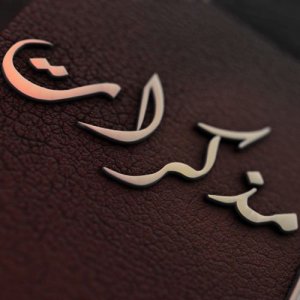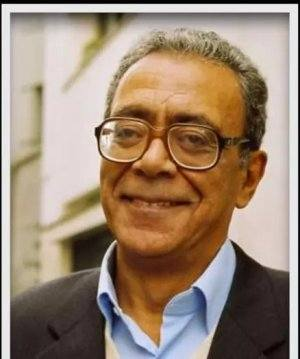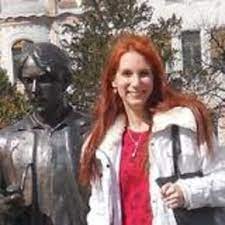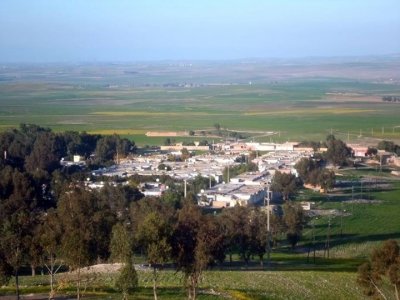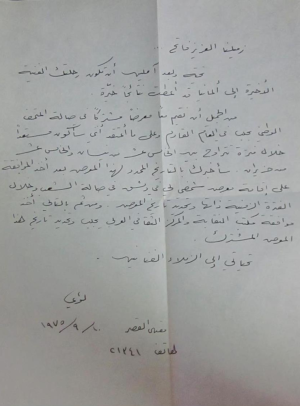" شابايتْ " / الموقعُ الرسميْ لوزارةِ الإعلامِ الإرتريَّة..
الأدبُ يعكسُ الهويَّة..
سؤالْ & جوابُ..
في 31 أكتوبر 2020
نتحدثُ مع السيد #أحمد_عمر_شيخ العضوُ المؤسِّسُ لقسم اللغة العربية بوزارةِ الإعلامِ الذي لعبَ دورًا كبيرًا في تطويرِ الأدبِ العربيِّ على مرِّ السِّنين.
تتراوحُ كتاباته مابين المقالاتِ السياسيَّةِ إلى الروايات,, حيثُ مكنتْ أعمالُ السيد/ أحمد من التشاركِ دوليًا مع مؤلفين آخرين عبر نشرِ خمسِ رواياتٍ وثلاثِ مجموعاتٍ شعريةٍ ,, وفازَ بالعديدِ من الجوائز. حاصل على إجازة " بكالوريوسْ " في الاقتصاد والإدارة العامة مِنْ " جامعة الملك عبد العزيز " ، لكن شغفه بالكلمةِ المكتوبة أوصله إلى مسارٍ مختلفْ ,, يتحدثُ هنا عن رحلتِهِ كإعلاميٍّ وكاتبٍ ,, شكراً لمنحنا وقتك. هل لكَ أنّْ تخبرنا عن عملك؟!.
حسنًا ,, لقد تمَّ تكليفي للعملِ في وزارةِ الإعلامِ لأول مرَّة في عام 1992. على الرغم من أنَّ الصحافة لم تكن مجال تخصصيْ بدأت العمل في قسم الإذاعة في برنامج اللغة العربية وبعد فترةٍ وجيزةٍ بدأت العملَ كمذيعٍ وتأسيسِ برامج أخرى ألهمت الشبابَ الإريتري للتعرف على الفنونِ والثقافة,, كما كنتُ أعمل أيضًا كمسؤولٍ لقسم الأخبار العربية حيث قمنا أيضًا بتدريب الصحفيين .
أعتقدُ أنَّ العملَ في الإعلام مرتبط ٌ دائمًا بالفنونِ والثقافة ، وخاصة الكتابة. لهذا كنت أعمل دائمًا على تطوير كتاباتيْ الأدبيَّة , وتمكنتُ حتى الآن مِنْ نشرِ خمسِ رواياتٍ وقليل من القصائد بالإضافة إلى مقالاتٍ مختلفةٍ في الصحفِ والمطبوعاتِ الإلكترونية.
.في الأساس ، يصبُّ كلُّ ماأقومُ بِهِ عنْ "إرتريا" , وأسعى أنّْ تعكسَ كلّ كتاباتيْ الثقافة والمصاعب التي مررنا بها كشعبْ , فقد كُنا مستعمرين لسنواتٍ عديدة ، وحقيقة أننا مررنا بأوقاتٍ مروعة كشعبٍ ونحنُ الآن هنا , هذا شيءٌ ألهمنيْ ويلهمنيْ , وهو ما أريدُ مشاركته مع العالمْ من خلال أدبيْ ، ليس فقط رواياتيْ ولكن أيضًا مقالاتيْ . إذنْ ، كتابي الأولْ " نورايْ" (نُشر عام 1997 وأعيد نشره عام 2003 من قِبَلْ " الهيئة المصريَّة العامة للكتابْ " في مصر) وهيْ رواية تعكسُ الصدمة الثقافية التي عانى منها الإريتريون الذين عاشوا في الخارج عند عودتهم إلى ديارهم بعد استقلال "إرتريا". رواية أخرى هي "الأشرعة" (1999) وهي رواية كُتبتْ في وقت كنا نخوض فيه حربًا أخرى والتيْ شاركتُ فيها , "الرِّيحُ الحمراءْ " /(2007)و" أحزانً المطر " /2001 , و"الهشّْ" (2015) وهما آخر روايتين ليْ حتى الآنْ.
إلى جانب ذلك , هناكَ " لمْ يعد الغريبْ" (1993) ، وتفاصيلُ إمرأةٍ قادمةٍ من السُّودانْ" (1994) , و"رقصة الطيور" (2003) , هي مجموعاتي الشعرية التي نشرتها.
تحوَّلتْ بعضُ قصائدي كلمات لبعض الأغاني.الأولى كانت في العام 1997 ، وهي أغنية وطنيَّة عن " إرتريا " غناها المطربُ السودانيُّ الأسطوريُّ / محمد وردي, وهناك العديد من القصائد الأخرى التي تحولت إلى أغاني.
أكتب أيضًا مقالاتٍ سياسية حول الأوضاعِ الآنيَّة في المنطقة , وقد تمَّتْ ترجمةُ بعض مقالاتي إلى اللغة الإنجليزية ونشرت فيْ مواقع مختلفة.
* - هل حصلت على أي جوائز عن كتبك؟!.
** - كنت محظوظًاً فيْ الفوز بجائزة " رايموكْ" ثلاث مرات ، في عام 1995 عن قصيدة بعنوان "أغنياتُ الضوءْ" ، وفي عام 1997 عن رواية "نوراي" ، وفي عام 1999 عن قصيدتي "نشيدُ المعركة " .
• - الأدب العربي في إريتريا كيف تنظرون إليه؟!.
** - أنا بصراحة لا أشعر أننا فعلنا ما يكفي في الأدب العربيِّ في " إرتريا " في أيٍّ مِنْ مجالاته . وأنا أول إريتري يكتب رواية باللغة العربية. لم يبدأ كتاب إريتريون آخرون بنشر الروايات باللغة العربية إلا بعد نشر روايتي الثالثة والرابعة ,, وأعتقد أن المشكلة تكمن في أن معظم الذين يكتبون باللغة العربية يعيشون في الخارج ، وبما أنَّ الأدبَ يعكس حياة الأفراد والمجتمع يجب أنّْ يكونَ الكاتب يحيا داخل وطنه ، ويشارك الناس في أفراحهمْ وأحزانهمْ ، ليكون قادرًا على التفكير بشكل صادقٍ و معايشة حقيقيَّة . وعلى وجهِ الخصوصِ تتطلب كتابة الرواية قدرًا كبيرًا من الاهتمام بكل تفاصيل بيئتك. ففي الماضي كان لدينا أناسٌ لامعون يكتبون بالعربية ، في الشِّعر مثلاً ، مثل/ أحمد محمد سعد.•
* باعتبارك شخصًا تم الاعتراف به دوليًا من خلال كتاباتكْ ، كيف يمكنك مواكبة التطورات في اللغة؟!.
** كلُّ شيء لديه معياره الخاص. ولهذا السبب أحاول العملَ على تطويرِ مستواي من خلال القراءة والبحث , واللغة العربية هي لغة واسعة وعميقة , وعليك أن تعرف بالضبط قدراتك وتحاول ترقية نفسك.
الأشياء التي أعتبرها أكثر أهمية للمساعدةِ على مواكبة العالم هي الجمع بين تجربتك والاستفادة مِنْ أخطائك ومواكبة التحدياتِ مع التقنيات الحالية التي يتمُّ استخدامها , فعلى سبيل المثال تم نشر إحدى قصائدي على واحدةٍ من أكبر المنصَّاتِ الإلكترونية هيَ " ملائكةُ السافانا للشعراء الأفارقة " ، وكان لها العديد من المشاهدات في فترةٍ زمنية وجيزةٍ , حيثُ تمَّ إخطاري من قبل Facebook ومديري الموقع بذلكْ . ومن القصائد الأخرى التي انتشرت بسرعة " معلقةُ الأحباشّْ " وهيَ منشورة في العديد من المواقع الإلكترونية.
• أي شيء في النهاية؟!.
** لكي نكتبَ شيئًا جيدًا ، يجبْ أن نعرفَ أولاً جذورنا وتاريخنا وقيمنا / هويتنا , و أعتقد أننا مقبلون على حقبةِ سلامٍ جديدة كشعب , وعلينا جميعًا الحفاظ عليه والعمل بجدٍّ في كلِّ مجالْ.
.
===================
Shabait.com
...................
Literature mirrors Identity
Q & A
On Oct 31, 2020
We talk to Mr. Ahmed Omer Sheikh, a founding member of the Arabic Department at the Ministry of Information who has played a great role in developing Arabic literature over the years. His writings range from political articles to novels. Mr. Ahmed’s works have enabled him to mingle internationally with other authors. He has published five novels and three collections of poems and has won many awards. He has a degree in Economics and public administration from king Abdel Aziz University, but his passion for the written word took him along a different path. Here he talks about his journey as a journalist and as a writer.
• Thank you for your time. Would you please tell us about your work?
Well, I was first assigned to work at the Ministry of Information in 1992. Even though journalism was never my field, I started working at the radio department in the Arabic language program. Soon, I began working as an anchor and leading other programs that inspired young Eritreans to get to know art. I was also serving as the head of the Arabic news department where we also trained journalists.
I believe that working in the media is always connected to art, especially writing. That is why I was always working on my literature. So far, I have been able to publish five novels and a few poems besides various articles in the newspaper and online publications.
Basically, I am all about Eritrea. And I want all my writing to reflect the culture and
hardships we went through as a people. We were colonized for many years, and the fact that we have gone through dreadful times as a people and now we are here is something that inspires me. That’s what I want to share with the world through my literature, not only my novels but also my articles. So, my first book, Nurai (published in 1997 and republished in 2003 by the author’s associates in Egypt) reflects the cultural shock Eritreans who had lived abroad experienced upon their return home following Eritrea’s independence. Another one was Alashrea (1999), a novel written at a time we were going through another war, where I participated. Alreih Alhamara (2007) and Alhash (2015) are my last two novels.
Besides, Heen LmYaed Alquareeb (1993), Tfaseel Emaraa Gadema mn Alsudan (1994), and Raqsat Altewr (2003) are my collections of poems I published. A few of my poems became lyrics of some songs. The first one was in 1997, a song about the country which was sung by the legendary Sudanese singer Mohammed Wardi. There are many other poems that have been turned into songs. I also write political articles about the current affairs of different countries. Some of my articles have been translated into English and got posted on different websites.
• Have you had any awards for your books?
I was fortunate to win the Raymok award three times, in 1995 for a poem titled Light Songs, in 1997 for Nurai, a novel, and in 1999 for my poem, Songs of War.
• Arabic literature in Eritrea, how do you view it?
I honestly don’t feel like we have done enough in Arabic literature, in every field that is. I am the first Eritrean to write a novel in Arabic. It was only after my 3rd or 4th novels were published that other Eritrean writers started publishing novels in Arabic. I think the problem is that most people who write in Arabic live abroad, and as literature reflects the lives of individuals and the community, the writer should be within the community, sharing the happiness and sorrow of the people, to be able to perfectly reflect the reality. Especially, writing a novel requires a great deal of attention to every detail of your environment. In the past, we had brilliant people who wrote in Arabic, mostly poetry, such as Ahmed Mohammed Suad.
• As someone who has been recognized internationally through your writings, how do you keep up with developments in the language?
Everything has its own standard. That’s why I try to raise my standard through reading and researching. Arabic is a vast language and you need to know exactly your capability and try to upgrade yourself. The things I consider most important to help you keep up with the world is combining your experience, your mistakes, and challenges with the current techniques that are being used. For instance, one of my poems was posted on one of the biggest websites called Savanna Angeles for African poets, and it had many views in a short period of time and I was notified by Facebook and the website managers. Another poem that went viral was Abyssinia which was posted on many websites.
• Anything at last?
In order to write something good, we have to know our roots, our history, and values. I believe we are embarking on a new peaceful era as a people and we should all embrace it and work hard in every field.

 shabait.com
shabait.com
الأدبُ يعكسُ الهويَّة..
سؤالْ & جوابُ..
في 31 أكتوبر 2020
نتحدثُ مع السيد #أحمد_عمر_شيخ العضوُ المؤسِّسُ لقسم اللغة العربية بوزارةِ الإعلامِ الذي لعبَ دورًا كبيرًا في تطويرِ الأدبِ العربيِّ على مرِّ السِّنين.
تتراوحُ كتاباته مابين المقالاتِ السياسيَّةِ إلى الروايات,, حيثُ مكنتْ أعمالُ السيد/ أحمد من التشاركِ دوليًا مع مؤلفين آخرين عبر نشرِ خمسِ رواياتٍ وثلاثِ مجموعاتٍ شعريةٍ ,, وفازَ بالعديدِ من الجوائز. حاصل على إجازة " بكالوريوسْ " في الاقتصاد والإدارة العامة مِنْ " جامعة الملك عبد العزيز " ، لكن شغفه بالكلمةِ المكتوبة أوصله إلى مسارٍ مختلفْ ,, يتحدثُ هنا عن رحلتِهِ كإعلاميٍّ وكاتبٍ ,, شكراً لمنحنا وقتك. هل لكَ أنّْ تخبرنا عن عملك؟!.
حسنًا ,, لقد تمَّ تكليفي للعملِ في وزارةِ الإعلامِ لأول مرَّة في عام 1992. على الرغم من أنَّ الصحافة لم تكن مجال تخصصيْ بدأت العمل في قسم الإذاعة في برنامج اللغة العربية وبعد فترةٍ وجيزةٍ بدأت العملَ كمذيعٍ وتأسيسِ برامج أخرى ألهمت الشبابَ الإريتري للتعرف على الفنونِ والثقافة,, كما كنتُ أعمل أيضًا كمسؤولٍ لقسم الأخبار العربية حيث قمنا أيضًا بتدريب الصحفيين .
أعتقدُ أنَّ العملَ في الإعلام مرتبط ٌ دائمًا بالفنونِ والثقافة ، وخاصة الكتابة. لهذا كنت أعمل دائمًا على تطوير كتاباتيْ الأدبيَّة , وتمكنتُ حتى الآن مِنْ نشرِ خمسِ رواياتٍ وقليل من القصائد بالإضافة إلى مقالاتٍ مختلفةٍ في الصحفِ والمطبوعاتِ الإلكترونية.
.في الأساس ، يصبُّ كلُّ ماأقومُ بِهِ عنْ "إرتريا" , وأسعى أنّْ تعكسَ كلّ كتاباتيْ الثقافة والمصاعب التي مررنا بها كشعبْ , فقد كُنا مستعمرين لسنواتٍ عديدة ، وحقيقة أننا مررنا بأوقاتٍ مروعة كشعبٍ ونحنُ الآن هنا , هذا شيءٌ ألهمنيْ ويلهمنيْ , وهو ما أريدُ مشاركته مع العالمْ من خلال أدبيْ ، ليس فقط رواياتيْ ولكن أيضًا مقالاتيْ . إذنْ ، كتابي الأولْ " نورايْ" (نُشر عام 1997 وأعيد نشره عام 2003 من قِبَلْ " الهيئة المصريَّة العامة للكتابْ " في مصر) وهيْ رواية تعكسُ الصدمة الثقافية التي عانى منها الإريتريون الذين عاشوا في الخارج عند عودتهم إلى ديارهم بعد استقلال "إرتريا". رواية أخرى هي "الأشرعة" (1999) وهي رواية كُتبتْ في وقت كنا نخوض فيه حربًا أخرى والتيْ شاركتُ فيها , "الرِّيحُ الحمراءْ " /(2007)و" أحزانً المطر " /2001 , و"الهشّْ" (2015) وهما آخر روايتين ليْ حتى الآنْ.
إلى جانب ذلك , هناكَ " لمْ يعد الغريبْ" (1993) ، وتفاصيلُ إمرأةٍ قادمةٍ من السُّودانْ" (1994) , و"رقصة الطيور" (2003) , هي مجموعاتي الشعرية التي نشرتها.
تحوَّلتْ بعضُ قصائدي كلمات لبعض الأغاني.الأولى كانت في العام 1997 ، وهي أغنية وطنيَّة عن " إرتريا " غناها المطربُ السودانيُّ الأسطوريُّ / محمد وردي, وهناك العديد من القصائد الأخرى التي تحولت إلى أغاني.
أكتب أيضًا مقالاتٍ سياسية حول الأوضاعِ الآنيَّة في المنطقة , وقد تمَّتْ ترجمةُ بعض مقالاتي إلى اللغة الإنجليزية ونشرت فيْ مواقع مختلفة.
* - هل حصلت على أي جوائز عن كتبك؟!.
** - كنت محظوظًاً فيْ الفوز بجائزة " رايموكْ" ثلاث مرات ، في عام 1995 عن قصيدة بعنوان "أغنياتُ الضوءْ" ، وفي عام 1997 عن رواية "نوراي" ، وفي عام 1999 عن قصيدتي "نشيدُ المعركة " .
• - الأدب العربي في إريتريا كيف تنظرون إليه؟!.
** - أنا بصراحة لا أشعر أننا فعلنا ما يكفي في الأدب العربيِّ في " إرتريا " في أيٍّ مِنْ مجالاته . وأنا أول إريتري يكتب رواية باللغة العربية. لم يبدأ كتاب إريتريون آخرون بنشر الروايات باللغة العربية إلا بعد نشر روايتي الثالثة والرابعة ,, وأعتقد أن المشكلة تكمن في أن معظم الذين يكتبون باللغة العربية يعيشون في الخارج ، وبما أنَّ الأدبَ يعكس حياة الأفراد والمجتمع يجب أنّْ يكونَ الكاتب يحيا داخل وطنه ، ويشارك الناس في أفراحهمْ وأحزانهمْ ، ليكون قادرًا على التفكير بشكل صادقٍ و معايشة حقيقيَّة . وعلى وجهِ الخصوصِ تتطلب كتابة الرواية قدرًا كبيرًا من الاهتمام بكل تفاصيل بيئتك. ففي الماضي كان لدينا أناسٌ لامعون يكتبون بالعربية ، في الشِّعر مثلاً ، مثل/ أحمد محمد سعد.•
* باعتبارك شخصًا تم الاعتراف به دوليًا من خلال كتاباتكْ ، كيف يمكنك مواكبة التطورات في اللغة؟!.
** كلُّ شيء لديه معياره الخاص. ولهذا السبب أحاول العملَ على تطويرِ مستواي من خلال القراءة والبحث , واللغة العربية هي لغة واسعة وعميقة , وعليك أن تعرف بالضبط قدراتك وتحاول ترقية نفسك.
الأشياء التي أعتبرها أكثر أهمية للمساعدةِ على مواكبة العالم هي الجمع بين تجربتك والاستفادة مِنْ أخطائك ومواكبة التحدياتِ مع التقنيات الحالية التي يتمُّ استخدامها , فعلى سبيل المثال تم نشر إحدى قصائدي على واحدةٍ من أكبر المنصَّاتِ الإلكترونية هيَ " ملائكةُ السافانا للشعراء الأفارقة " ، وكان لها العديد من المشاهدات في فترةٍ زمنية وجيزةٍ , حيثُ تمَّ إخطاري من قبل Facebook ومديري الموقع بذلكْ . ومن القصائد الأخرى التي انتشرت بسرعة " معلقةُ الأحباشّْ " وهيَ منشورة في العديد من المواقع الإلكترونية.
• أي شيء في النهاية؟!.
** لكي نكتبَ شيئًا جيدًا ، يجبْ أن نعرفَ أولاً جذورنا وتاريخنا وقيمنا / هويتنا , و أعتقد أننا مقبلون على حقبةِ سلامٍ جديدة كشعب , وعلينا جميعًا الحفاظ عليه والعمل بجدٍّ في كلِّ مجالْ.
.
===================
Shabait.com
...................
Literature mirrors Identity
Q & A
On Oct 31, 2020
We talk to Mr. Ahmed Omer Sheikh, a founding member of the Arabic Department at the Ministry of Information who has played a great role in developing Arabic literature over the years. His writings range from political articles to novels. Mr. Ahmed’s works have enabled him to mingle internationally with other authors. He has published five novels and three collections of poems and has won many awards. He has a degree in Economics and public administration from king Abdel Aziz University, but his passion for the written word took him along a different path. Here he talks about his journey as a journalist and as a writer.
• Thank you for your time. Would you please tell us about your work?
Well, I was first assigned to work at the Ministry of Information in 1992. Even though journalism was never my field, I started working at the radio department in the Arabic language program. Soon, I began working as an anchor and leading other programs that inspired young Eritreans to get to know art. I was also serving as the head of the Arabic news department where we also trained journalists.
I believe that working in the media is always connected to art, especially writing. That is why I was always working on my literature. So far, I have been able to publish five novels and a few poems besides various articles in the newspaper and online publications.
Basically, I am all about Eritrea. And I want all my writing to reflect the culture and
hardships we went through as a people. We were colonized for many years, and the fact that we have gone through dreadful times as a people and now we are here is something that inspires me. That’s what I want to share with the world through my literature, not only my novels but also my articles. So, my first book, Nurai (published in 1997 and republished in 2003 by the author’s associates in Egypt) reflects the cultural shock Eritreans who had lived abroad experienced upon their return home following Eritrea’s independence. Another one was Alashrea (1999), a novel written at a time we were going through another war, where I participated. Alreih Alhamara (2007) and Alhash (2015) are my last two novels.
Besides, Heen LmYaed Alquareeb (1993), Tfaseel Emaraa Gadema mn Alsudan (1994), and Raqsat Altewr (2003) are my collections of poems I published. A few of my poems became lyrics of some songs. The first one was in 1997, a song about the country which was sung by the legendary Sudanese singer Mohammed Wardi. There are many other poems that have been turned into songs. I also write political articles about the current affairs of different countries. Some of my articles have been translated into English and got posted on different websites.
• Have you had any awards for your books?
I was fortunate to win the Raymok award three times, in 1995 for a poem titled Light Songs, in 1997 for Nurai, a novel, and in 1999 for my poem, Songs of War.
• Arabic literature in Eritrea, how do you view it?
I honestly don’t feel like we have done enough in Arabic literature, in every field that is. I am the first Eritrean to write a novel in Arabic. It was only after my 3rd or 4th novels were published that other Eritrean writers started publishing novels in Arabic. I think the problem is that most people who write in Arabic live abroad, and as literature reflects the lives of individuals and the community, the writer should be within the community, sharing the happiness and sorrow of the people, to be able to perfectly reflect the reality. Especially, writing a novel requires a great deal of attention to every detail of your environment. In the past, we had brilliant people who wrote in Arabic, mostly poetry, such as Ahmed Mohammed Suad.
• As someone who has been recognized internationally through your writings, how do you keep up with developments in the language?
Everything has its own standard. That’s why I try to raise my standard through reading and researching. Arabic is a vast language and you need to know exactly your capability and try to upgrade yourself. The things I consider most important to help you keep up with the world is combining your experience, your mistakes, and challenges with the current techniques that are being used. For instance, one of my poems was posted on one of the biggest websites called Savanna Angeles for African poets, and it had many views in a short period of time and I was notified by Facebook and the website managers. Another poem that went viral was Abyssinia which was posted on many websites.
• Anything at last?
In order to write something good, we have to know our roots, our history, and values. I believe we are embarking on a new peaceful era as a people and we should all embrace it and work hard in every field.
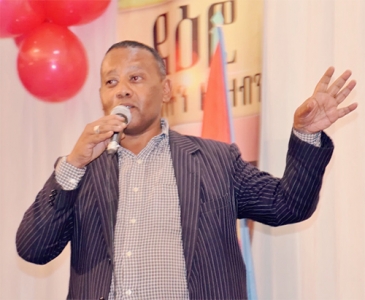
Eritrea Ministry Of Information
 shabait.com
shabait.com

